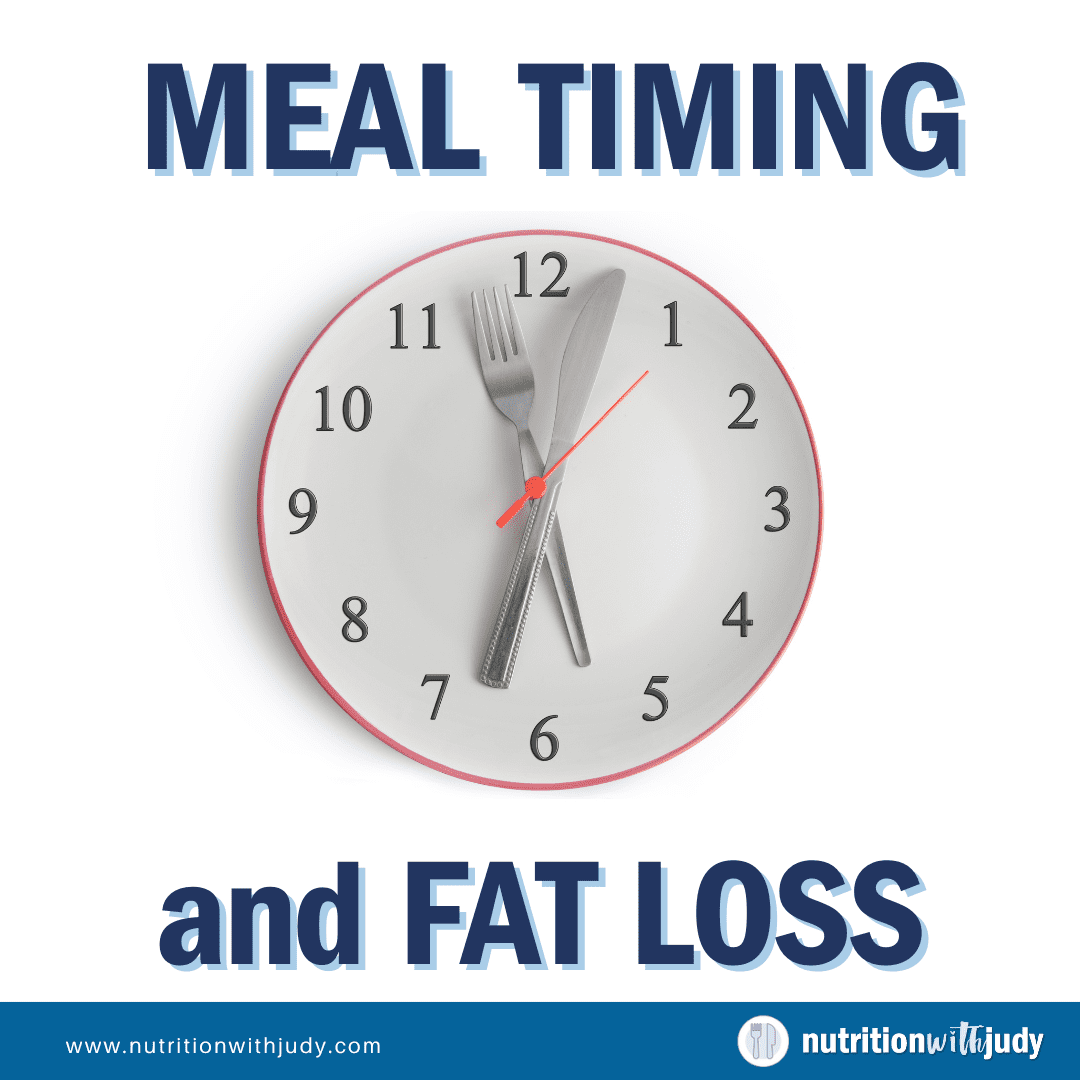

Meal Timing and Fat Loss


Original Publish Date: 11/5/22
Should we be eating more at breakfast? Or at dinner?
Wellness advocates say we need breakfast for longevity. Others say we need it to heal leptin resistance. Others recommend we should fast for breakfast (or dinner) to heal insulin resistance.
So what’s the truth?
The truth is usually somewhere in the middle and always depends on context. (Sorry, it’s not simple.)
A recent randomized control study, “Timing of daily calorie loading affects appetite and hunger responses without changes in energy metabolism in healthy subjects with obesity,” found no real weight loss difference whether you ate more at breakfast or ate more at dinner.
The study had groups eat the exact same macros and calories, but one group ate more calories for breakfast, while the other group ate more for dinner.
Some of my clients share that they force breakfast because of fears of leptin resistance or because of hormonal issues.
I don’t know how much these recommendations are evidence-based.
Leptin As a Hormone Example
Clinically, as part of the CIRS blood work, I test a lot of leptin markers. Most of my clients, even the clients who are overweight, are not leptin-resistant.
I’ll be sharing about leptin resistance and the recent (over)hype of it on an upcoming Cutting Against the Grain podcast.
Leptin is a hormone released by fat cells to manage energy balance and also helps to regulate body weight. Leptin’s primary function is to tell the brain (hypothalamus) to signal how much energy should be stored as fat, and how much should be used for growth and reproduction.
The more fat tissue we have, the more leptin we produce. Disruption of leptin or leptin resistance is associated with weight gain and obesity.
Leptin resistance usually develops over time due to these factors:
- Poor diet
- Poor sleep
- Too much stress
Additionally, leptin also causes inflammation. Sometimes leptin is elevated in CIRS sufferers, as proinflammatory cytokines (such as MMP-9) bind to leptin receptors.
Matrix metallopeptidase 9 (MMP-9) is one of the innate inflammatory markers in CIRS bloodwork testing.
Having blocked leptin receptors also interferes with the production of melanocyte-stimulating hormone (MSH). Remember in previous newsletters, MSH is partially produced by the sun hitting our skin.
Are wellness advocates recommending sun exposure because the root cause is (unknowingly) low MSH (and possibly CIRS)? Just a thought…
Ways to Improve Leptin
- Limit sugars and get enough fat and protein
- Limit snacking
- Get adequate sleep
- Spend time in nature and the sun (MSH)
- Ensure your detox pathways are functioning (drainage via lymph, urine via kidneys, stools via bowels, and bile via gallbladder and gut health)
- Increase omega-3 levels. One reason to increase omega-3s is that MMP-9 (cytokine) transports in the blood and to the organs, causing inflammatory damage. Omega-3s block MMP-9 from doing this (and why CIRS clients often are low in omega-3s and need them for the CIRS protocol).
You can see from the last bullet why I’m a fan of omega-3s and am pretty disappointed by carnivore diet advocates who say fatty fish is polluted and unnecessary. Sorry, but no amount of grass-finished beef will compare to fatty salmon or sardines for omega-3s. (Lamb’s brain has a lot of omega-3s)
I personally think the leptin argument is overhyped. The question always to ask is WHY is leptin even imbalanced? Bodily systems never work alone.
If you’re scared by leptin resistance, and in turn eating breakfast when you don’t want to, just test your leptin at any lab. The cost is anywhere between $55-100 (problem solved!).
Back to Meal Timing
Based on a recent study, eat when you feel your best. Consistency matters more than when you eat your meals.
If eating breakfast causes you to eat more throughout the day, then skip breakfast. If eating dinner causes you to sleep poorly, then skip dinner. If you feel best eating 5 small meat-based meals, then eat 5 small meat-based meals.
Find what makes sense for you, as meal timing for weight loss isn’t a very powerful lever.
Always know thy self.
In health,
Judy




Amy Harwood
February 24, 2024 at 10:03 amLove the article
Thank you Judy